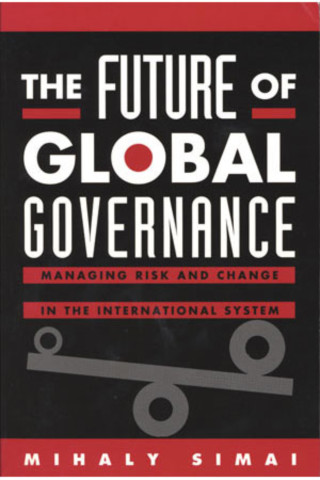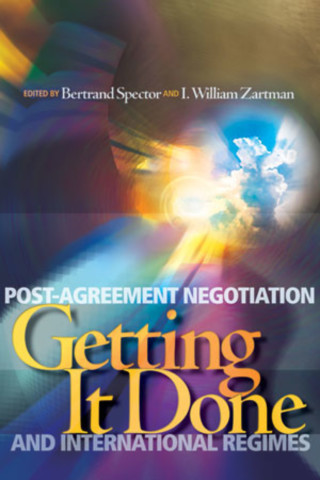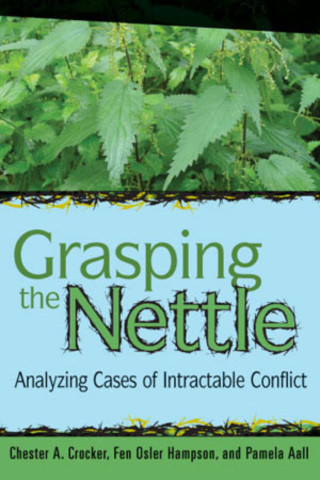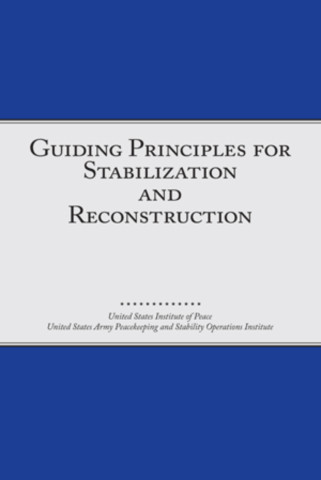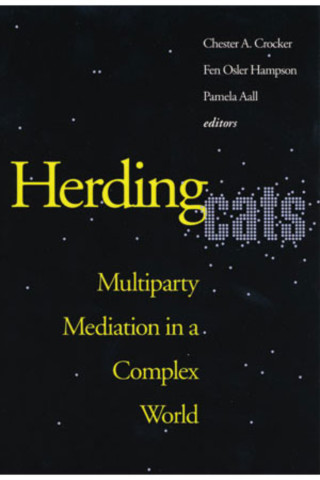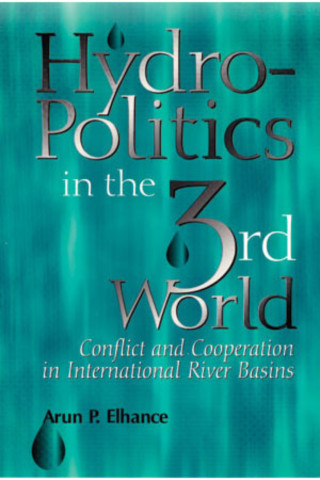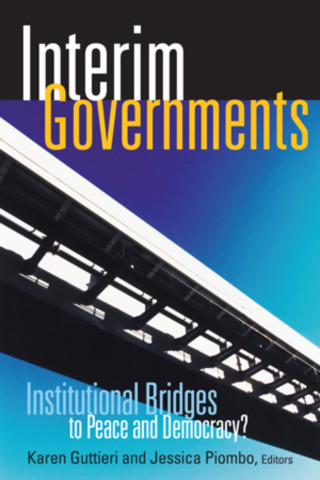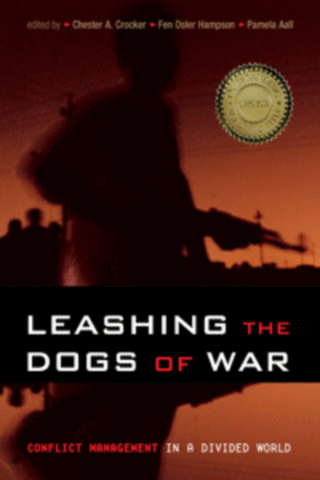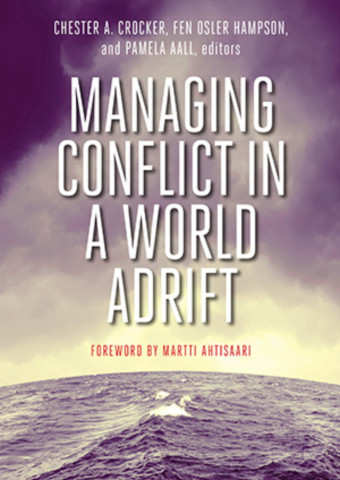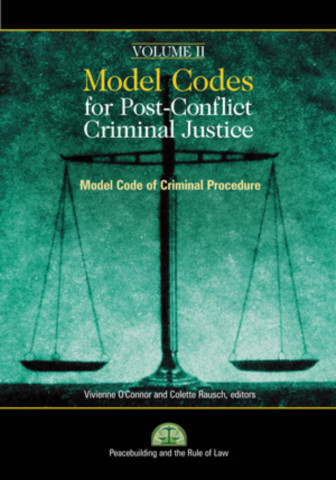Catalog
- Sort by
What are the major political, economic, technological, environmental, and social changes confronting the world today, and what risks do they pose? Given what we know about these changes and risks, what adjustments will have to be undertaken to make the world as peaceful and stable as possible? Drawing on over 30 years' research, the eminent European scholar Mihaly Simai combines a global systems approach with a hard-headed appreciation of political realities as he seeks answers to these two overarching questions.
This volume is at once richly informative and profoundly challenging. Unflinching in its diagnosis of the past failures and present inadequacies of global governance, pragmatic in its prescriptions for more effective multilateral cooperation, Simai's work dissects the dimensions and dangers of a world in transition.
From NAFTA to NATO, from the WTO to the WHO, a vast array of international regimes manages an astounding number of regional and global problems. Yet the dynamics of these enormously influential bodies are barely understood. Scholars have scrutinized international regimes, but that scrutiny has been narrowly focused on questions of regime formation and regime compliance. Remarkably little attention has been paid to the crucial question of how regimes sustain themselves and evolve.
This pioneering work sets about correcting that neglect. As its title suggests, Getting It Done explores how international regimes accomplish their goals—goals that constantly shift as problems change and the power of member-states shifts. In a series of conceptually bold opening chapters, the volume editors emphasize that successful evolution depends above all on a process of continuous negotiation—domestic as well as international—in which norms, principles, and rules are modified as circumstances and interests change.
The second part of the volume takes this framework and applies it to four case studies, two regional, two global. Each case study presents the aims, achievements, and structure of a regime and demonstrates how it adjusts its course through negotiation. A final chapter draws both theoretical and practical lessons for the future.
Analyzes the defining characteristics and underlying dynamics of intractable conflicts.
Guiding Principles for Stabilization and Reconstruction presents the first-ever, comprehensive set of shared principles for building sustainable peace in societies emerging from violent conflict. The manual serves as a tool for U.S. government civilian planners and practitioners engaged in stabilization and reconstruction (S&R) missions and is a valuable resource for international actors and nongovernmental organizations.
An illustrious cast of practitioners here describe their personal experiences in working to bring peace in significant conflicts across four continents. As James Baker, Richard Holbrooke, Max van der Stoel, Alvaro de Soto, Aldo Ajello, and others make clear, the mediator must operate in an environment of daunting complexity, insecurity, and uncertainty. Whether sequestered in Norway or zigzagging across Africa, the mediator can take nothing for granted—not participants, agendas, or timetables—in the struggle to sustain and advance the peace process.
And just to make things more complicated, each conflict now typically attracts several independent mediators. Indeed, coordinating third party mediators is like herding cats—difficult if not impossible.
In each of the two dozen cases examined in this volume, mediation was a multiparty effort, involving a range of actors—individuals, states, international organizations, and NGOs—working simultaneously or sequentially. These vivid accounts attest to the crucial importance of coordinating and building upon the efforts of other players. They also illuminate the opportunities and problems presented by different entry points of mediation—from conflict prevention, through negotiation during active conflict, to post-settlement implementation and peacebuilding—and by different kinds of leverage, levels of engagement, and objectives.
This volume was developed by the same editors who were responsible for USIP Press's highly successful 1996 publication Managing Global Chaos and is intended as a follow-on to that book. In their feedback on the 1996 volume, readers requested additional resources, especially case studies that reflect real, hands-on experience in complex settings. Not only will these cases illustrate how multiparty mediation works or does not work, but they should also stimulate further work on the special requirements and best practices of the field, promote a dialogue among practitioners themselves as well as between academics and practitioners, and lead to unique insights, new understandings, and alternative approaches that can be applied to future mediations.
The editors have framed the volume with discussions that link the practitioner cases to the scholarly literature on mediation, thereby situating the case studies in terms of theory while also drawing lessons for both scholars and practitioners that can help guide future endeavors.
With more than 50 percent of the world’s landmass covered by river basins shared by two or more states, competition over water resources has always had the potential to spark violence. And growing populations and accelerating demands for fresh water are putting ever greater pressures on already scarce water resources.
In this wide-ranging study, Arun Elhance explores the hydropolitics of six of the world’s largest river basins. In each case, Elhance examines the basin’s physical, economic, and political geography; the possibilities for acute conflict; and efforts to develop bilateral and multilateral agreements for sharing water resources.
The case studies lead to some sobering conclusions about impediments to cooperation but also to some encouraging ones—among them, that it may not be possible for Third World states to solve their water problems by going to war, and that eventually even the strongest riparian states are compelled to seek cooperation with their weaker neighbors.
This edited volume by Karen Guttieri and Jessica Piombo explores various aspects of the newly emerging range of interim regimes, focusing on issues of legitimacy, conflict management, and the increasing participation of the international community in transitions from war to peace.
The definitive volume on the sources of contemporary conflict and the array of possible responses to it.
In the midst of a global political shift where power moves from central institutions to smaller, more disbursed units, "Managing Conflict in a World Adrift" features lessons in contemporary theory and practice of conflict management. In this volume, forty of the world's leading analysts of international affairs provide innovative thinking about the relationship between political, social, and economic change and the outbreak and spread of conflict—and what this means in practical terms.
Volume II of Model Codes for Post-Conflict Criminal Justice continues the path-breaking work of volume I, providing an indispensable resource for those striving to reestablish the rule of law in societies recently wracked by violent conflict.

